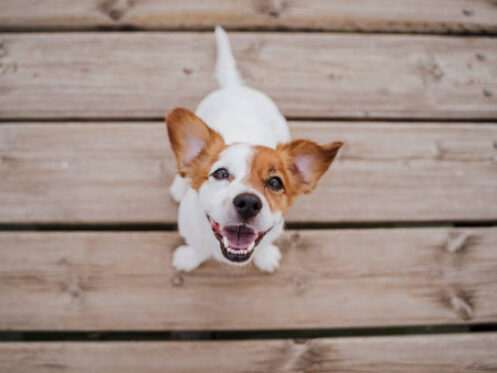Pets are important companions. According to the American Veterinary Medical Association (AVMA), nearly 90 million U.S. households have at least one pet. This number is up from 56% of U.S. households in 1988. Moreover, a pet can often play an indispensable role in a family’s life. According to the same research from AVMA, 85% of dog owners and 76% of cat owners view their pets as vital members of the family.
While our furry friends offer irreplaceable companionship, pets and plumbing do not necessarily get along. From chewed pipes to clogged drains, plumbing maintenance can evolve into a sheer nightmare if you do not have pet-proofing plans in place. Whether you are a new owner or have owned pets for years, a look at the top ways to protect your plumbing can help you avoid pet-related problems in the long run.
Secure Exposed Pipes
Many animals love to chew on anything. For example, chewing is an important developmental milestone for puppies and kittens. It helps them develop strong jaws and teeth, and chewing can also alleviate stress or anxiety. While this habit can make it a hassle to hide your favorite shoes and upholstery, dealing with footwear or furniture is nothing compared to the nightmare of your pet chewing on exposed pipes. These pipes are often much more expensive to replace than other items, and shredded pipes can also lead to other property problems like water damage.
Pets who swallow piping can end up in the emergency room for throat or intestinal issues. In the worst-case scenarios, these pets can even suffer electrocution. To spare everyone the trauma and heartache, reach out to a plumber to install insulation or protective covers around pipes. If you prefer, your plumber may be able to conduct re-piping to keep exposed pipes safely out of reach. You can also ask your plumber about professional-grade anti-chewing deterrents that help dissuade pets from gnawing on pipes.
Properly Dispose of Pet Waste
Toilets are only suitable for human waste. While flushing pet waste down the toilet may seem convenient at first, this practice can quickly create blockages in your plumbing. Always dispose of pet waste in a designated bin. This is especially true for kitty litter. Even though some cat litter brands claim to be “flushable,” kitty litter absorbs moisture instead of dissolving in it. Flushing litter down the toilet can create a huge, hardened clog that could cost thousands to extract.
Also, animal waste often contains a parasite known as Toxoplasma gondii. If you flush pet waste down the toilet, this parasitic protozoan harms the environment and eventually contaminates the drinking water supply. Always dispose of pet waste separately to keep your household environment safe.
Try Grooming Pets Outside
Whenever possible, you should try grooming or bathing your pets outside. Rolling around in the mud or grass may be fun for your pet, but the end result can be a nightmare for your plumbing. Clumps of hair, mud, and dander can create a thick buildup in your plumbing if you frequently brush or bathe your pet indoors. Even if you cannot bathe your dog entirely outside, pre-rinse your pet to eliminate the worst of the dirt and grime.
As the weather permits, complete as much of the dog-grooming process as possible outdoors and away from your plumbing. Some pet owners also leave the bathing process to professional groomers who have special protocols in place to handle dirt and hair. The investment of outsourcing your pet grooming can help prevent drain issues down the line.
Install Drain Covers or Stoppers
If you must bathe your pet indoors, be sure to install drain covers or stoppers. You can also ask your plumber about professional-grade strainers or mesh screens. These devices trap pet hair and prevent it from clogging your drains. As a bonus, having a screen in place can also reduce the amount of long human hair that goes down your drain as well.
Install a Water-Balancing Valve
To ensure the most comfortable environment for yourself and your pet, consider asking a plumber to install water-balancing valves. A balancing valve is a throttling device that regulates the flow of water through any hydronic system. That means that you can install valves on showerheads as well as sinks.
There are valves that regulate both temperature and pressure. For example, you may install a temperature valve to prevent the sudden onslaught of scalding hot or freezing cold water in the middle of a pet bath. Or you may want a pressure valve to prevent unexpected changes in the force of water from a fixture. Whichever you choose, an experienced plumber has the training and equipment to install all valves correctly.
Avoid Letting Pets Dig Around the House
Pets dig for a variety of reasons. Unfortunately, all this digging can damage your sewer lines and plumbing. Veterinarians recommend that you discourage digging by providing alternative activities such as walks or playing fetch in the park. In addition, remember to reward and reinforce positive behavior so that pets can learn to play in a safe manner. If the damage has already been done, contact a plumber immediately to prevent any further destruction to your property. This is especially true for damaged sewer lines that can contaminate the water supply and compromise the health of your family.
Keep the Toilet Lid Closed
It is easy for your pet to view the toilet as a gigantic water bowl. If pets are large enough, it is only natural that these curious companions will stop to take a drink. However, allowing your pet to drink from the bowl exposes them to any bacteria passed on from human waste. In addition, your pet can also become deathly ill from ingesting the chemicals used to keep toilet bowls fresh, disinfected, and clean. Even if you can no longer see the chemicals with your naked eye, they can remain in the toilet bowl for weeks.
Prevent the unsanitary practice of toilet bowl sipping by keeping the seat down and the toilet bowl closed. You can also ask your plumber about a toilet seat safety lock to keep your clever pet away from the bowl. Finally, make sure pets have plenty of fresh water available so that they do not attempt to quench their thirst elsewhere.
Schedule Regular Maintenance and Inspections
Preventative maintenance is often the best way to protect your property when you have a pet. Schedule seasonal inspections and maintenance with a reputable plumbing company. A plumbing expert can evaluate your system and correct any issues before they escalate into household emergencies. You can also inform plumbers of any pets you own beforehand so that they bring the right equipment and inspect the areas most vulnerable to damage.
Let the Experts Help
Pets enrich our lives with unconditional love and affection. However, it is important to protect our animal friends as well as our fellow humans by pet-proofing the home. Reaching out to an expert can help ensure that your plumbing remains in great working order. On Time Experts provides plumbing services for homes in Garland, Dallas, and surrounding areas. Our trained professionals conduct troubleshooting and diagnosis in order to complete pipe repairs, toilet repairs, or drain repairs. We used advanced techniques such as sewer camera inspections, and we can also tackle additional plumbing issues like sump pump problems or slab leaks. Contact On Time Experts today for all of your plumbing needs.

